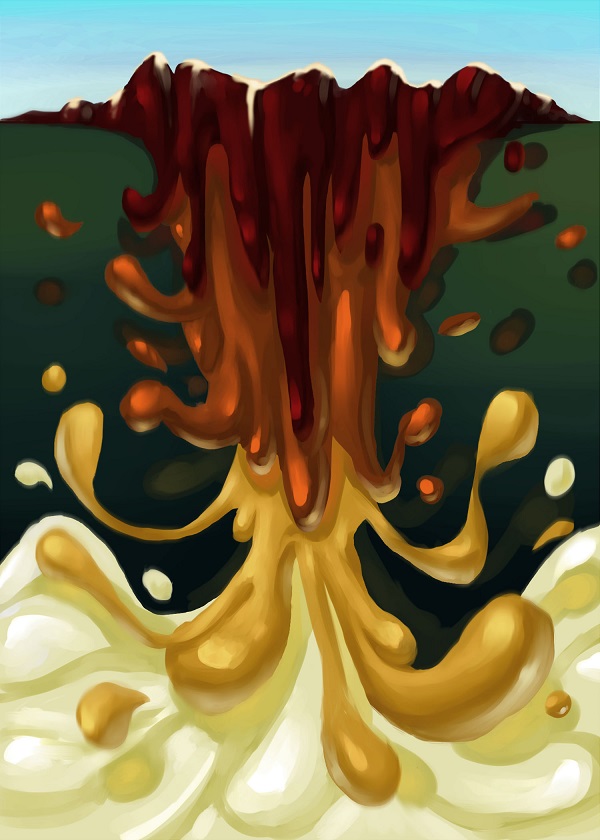“Flux”
Illustrated by Yu Xiang Ren
Words change over time, and the original meanings of sounds can sometimes transform completely. Words are in a state of flux. They are fluid and changeable. The English language and the words that make it up are in constant flux.
Etymology:
Flux is a word that comes from the Latin word fluxus, which itself came from the verb fluere, “to flow”.
 Meanings through history:
Meanings through history:
The word first appeared in the English language in the late 14th century, when it meant “abnormally copious flow.” That interpretation of the word was taken from the Old French word, flus, meaning “a flowing, a rolling; a bleeding.” In its early usage, it was used to describe an excessive flow of something, like blood or excrement. In that sense it was one of the first words used to describe dysentery, the infectious disease. It was in the 1620s that its meaning became closer to what we used it for today: a sense of “continuous succession of changes.”
Today, the word “flux” can be used as a noun, a verb, or even an adjective. As a noun, it is described by the Oxford English Dictionary as a “flowing” or a “flow.” As a verb, it is described as “to become fluid” or to “move and progress freely.” As an adjective, it is used to describe “that which is in a state of flux; ever-changing, fluctuating, inconstant, variable.”
Examples in literature:
From Shakespeare’s As You Like It (1599): “Thus misery doth part the flux of company.”
From Victor Hugo’s Notre Dame de Paris (1831): “A continual flux of a thousand black points which passed each other on the pavements made everything move before the eyes; it was the populace seen thus from aloft and afar.”
From E.M Forster’s Howards End (1910): “Concerts and plays swept past them, money had been spent and renewed, reputations won and lost, and the city herself, emblematic of their lives, rose and fell in a continual flux, while her shallows washed more widely against the hills of Surrey and over the fields of Hertfordshire.”

Comments
No comments posted yet.
You have to be registered and logged in in order to post comments!